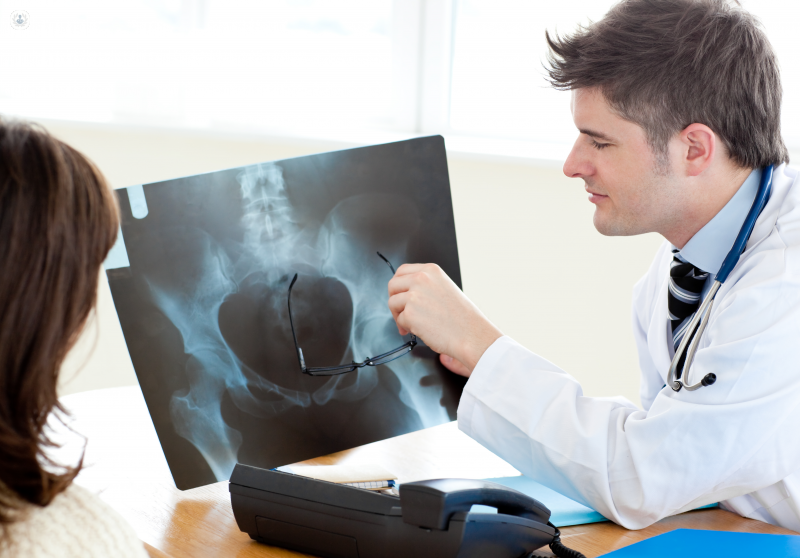Is hip replacement surgery successful?
Escrito por:Hip replacement surgery is a very successful operation for a majority of patients. Most patients return to normal activities after three months. Long term success is equally as good, with more than 90% of patients maintaining a successfully functioning hip replacement after 10 years, and after 20 years, up to 80% of patients still have a fully functioning hip. As with every operation, there are risks that the hip replacement might fail. We asked orthopaedic surgeon Mr Nick de Roeck to tell us more about common reasons for hip replacement failure.

What are the most common reasons for hip replacement failure?
Loosening
The most common reason for a hip replacement to fail is what’s known as ‘loosening’. Initially, when a hip replacement is performed, the components of the hip are securely fixed into the bone. However, over a long period of time, the components can loosen, causing pain.
The reason for this loosening is that the ball in the socket of the hip joint can start to wear down, releasing tiny particles, causing inflammation at the bone, damaging the bone and loosening the joint. If the replacement becomes too lose and the patient experiences a lot of pain, revision hip surgery may be required.
Dislocation
The second most common cause for failure of a hip replacement is dislocation. This is where the ball jumps out of the socket. When this happens, the leg shortens, the patient experiences a lot of pain and is unable to bear any weight. Often patients need to be taken to the hospital in an ambulance for an anaesthetic to help the hip manipulate the ball back into place. Dislocation is more likely to occur in the first few months after surgery as the deeper tissues heal. If a hip replacement dislocates three times, it’s likely to keep happening again and patients may very well require revision surgery to correct it.
Deep infection around the prosthesis
The most devastating cause of hip replacement failure is if infection occurs around the prosthesis. Microorganisms can settle on the prosthesis and multiply, leading to a deep infection. The risk of this happening is during the surgery itself, so every precaution must be taken to reduce this risk.
Less common causes of hip replacement failure
Less common causes of hip replacement failure can include; fracture of the bone around the prosthesis, which usually happens many years down the line, secondary to wearing of the prosthesis.
Another, more recent failure that has happened in recent years is the failure of metal on metal hip replacements. A large number of these were implanted in the UK between 2000 and 2010. The metal ions released from the prosthesis caused an inflammatory reaction in some patients and damaged the tissues around the hip. Surgery to remove the metal prosthesis is required in these cases.
How is the risk of failure reduced?
There are key things that can contribute to minimising the risk of revision hip surgery. The first thing is to use implants that have got a proven track record of long-term success. The second most important thing is to ensure that the prosthesis is as accurately placed as possible and to achieve this, it's recognised that surgeons who perform hip replacements regularly are more likely to be able to achieve this.
The risk of infection during a hip replacement can be minimized by taking great care during the surgery and giving the patient antibiotics at the time of surgery. In the UK, joint replacement surgery is also performed in ultra-clean air operating theatres to minimise the risk of infection. However, if infection does occur, it’s very difficult to eradicate it without further surgery, which involves removing the existing prosthesis and implanting another. Sometimes more than one operation will be required.
So, revision hip surgery is still very successful for most patients but the surgery can range from a fairly small procedure, similar to an initial hip replacement to a major procedure requiring extensive reconstruction. So, the most important thing is to try and minimise the risk of needing revision.
For more on hip replacements or if you'd like to make an appointment with Mr Nick de Roeck, please visit his profile.


